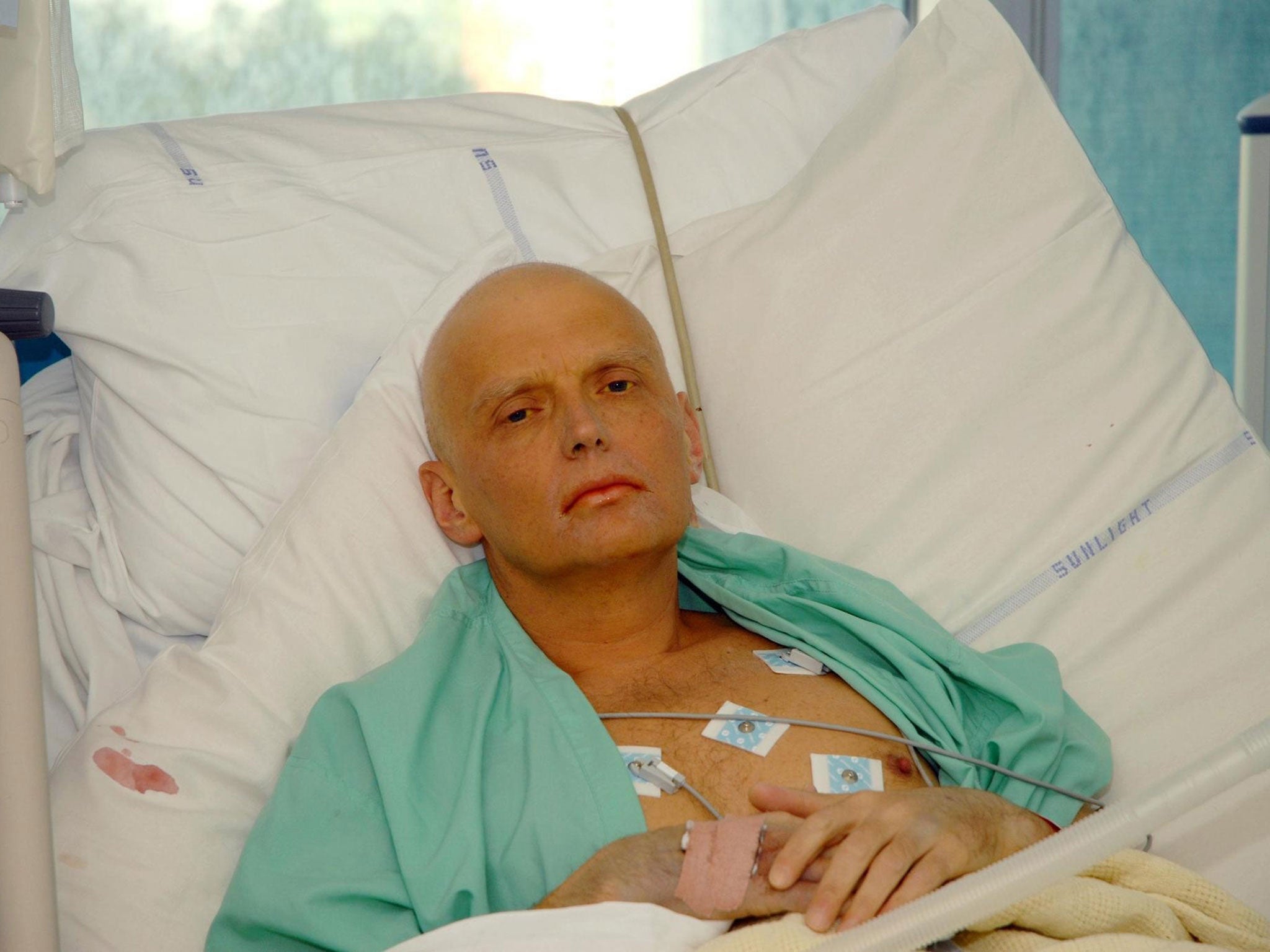Former KGB spy Alexander Litvinenko: William Hague wins secrecy fight over inquest
High Court judges counter coroner's call to reveal details of protected documents

Your support helps us to tell the story
From reproductive rights to climate change to Big Tech, The Independent is on the ground when the story is developing. Whether it's investigating the financials of Elon Musk's pro-Trump PAC or producing our latest documentary, 'The A Word', which shines a light on the American women fighting for reproductive rights, we know how important it is to parse out the facts from the messaging.
At such a critical moment in US history, we need reporters on the ground. Your donation allows us to keep sending journalists to speak to both sides of the story.
The Independent is trusted by Americans across the entire political spectrum. And unlike many other quality news outlets, we choose not to lock Americans out of our reporting and analysis with paywalls. We believe quality journalism should be available to everyone, paid for by those who can afford it.
Your support makes all the difference.Foreign Secretary William Hague today won a ruling to keep documents relating to the death of former KGB spy Alexander Litvinenko out of the public domain ahead of a proposed inquest.
Sir Robert Owen, the coroner presiding over the inquest into Mr Litvinenko's murder, ruled earlier this year that a cache of Government papers concerning matters of relating to the death could not be withheld on grounds of national security.
But the High Court yesterday overturned Sir Robert's ruling that the documents should not be the subject of a Public Interest Immunity (PII) certificate and said the coroner had failed to give sufficient weighting to the decision by the Foreign Office to keep the information secret.
The inquest into Mr Litvinenko's death by poisoning with radioactive polonium in a London hotel in November 2006 is the subject of an ongoing wrangle over whether it will be able to fully consider any role played by the Russian state in the killing.
The Government earlier this year ruled out a full public inquiry into the death after Sir Robert ruled that his inquest had been granted insufficient access to information to explore the full circumstances of Mr Litvinenko's poisoning. Ministers said the inquest could still provide a satisfactory inquiry.
Sir Robert has subsequently argued that the secret material held by the Foreign Office is necessary for a "fair and meaningful" inquest.
But lawyers acting on behalf of Mr Hague used judicial review proceedings to argue that the documents are "sensitive to the highest degree" and public disclosure would damage the national interest.
Lord Justice Goldring, sitting with two other judges, yesterday sided with the Foreign Office and declared the material must remain secret.
Quashing the coroner's decision to reveal it, the judge said: "I am driven to the conclusion that the weight the coroner gave to the views of the Secretary of State was insufficient and amounted to an error of law."
The judge, sitting with Lord Justice Treacy and Mr Justice Mitting, said the issues raised by the case "concerned the risk of significant damage to national security" and added: "Nothing we have decided reduces the importance of open justice."
The coroner is considering whether to appeal.
Mr Litvinenko, 43, a Russian dissident and former KGB agent, was poisoned polonium-210 while drinking tea during a meeting with former Russian security service colleagues at the Millennium Hotel in Grosvenor Square, London. He died three weeks later.
Mr Litvinenko's widow Marina and his son Anatoly have alleged that he was killed by the Russian state and was also an agent with Britain's MI6 at the time of his death. Russia has denied any involvement in the killing.
Mrs Litvinenko said through her lawyers that she was "disappointed but not surprised" by today's ruling and she was "gathering her strength" for what might be her last attempt "to see the truth emerge about the Russian state's responsibility" for her husband's death.
This will take the form of another application for judicial review - this time brought by her, challenging the Government's refusal to grant the coroner powers "to take account of secret closed material and convert the inquest into a public inquiry".
Ben Emmerson QC, for Mrs Litvinenko, told the judges that every stage of the legal process so far had left her "with increasing concern that the truth of the position about the Russian state's responsibility may not in due course be established by these proceedings".
The widow took "considerable comfort" from the fact that the closed material had been considered "by three senior judges wholly independent of the Government" who had put their conclusions in an open judgment for all to see.
A spokesman for the coroner said Sir Robert would now "reflect carefully" on the court's PII decision.
Join our commenting forum
Join thought-provoking conversations, follow other Independent readers and see their replies
Comments